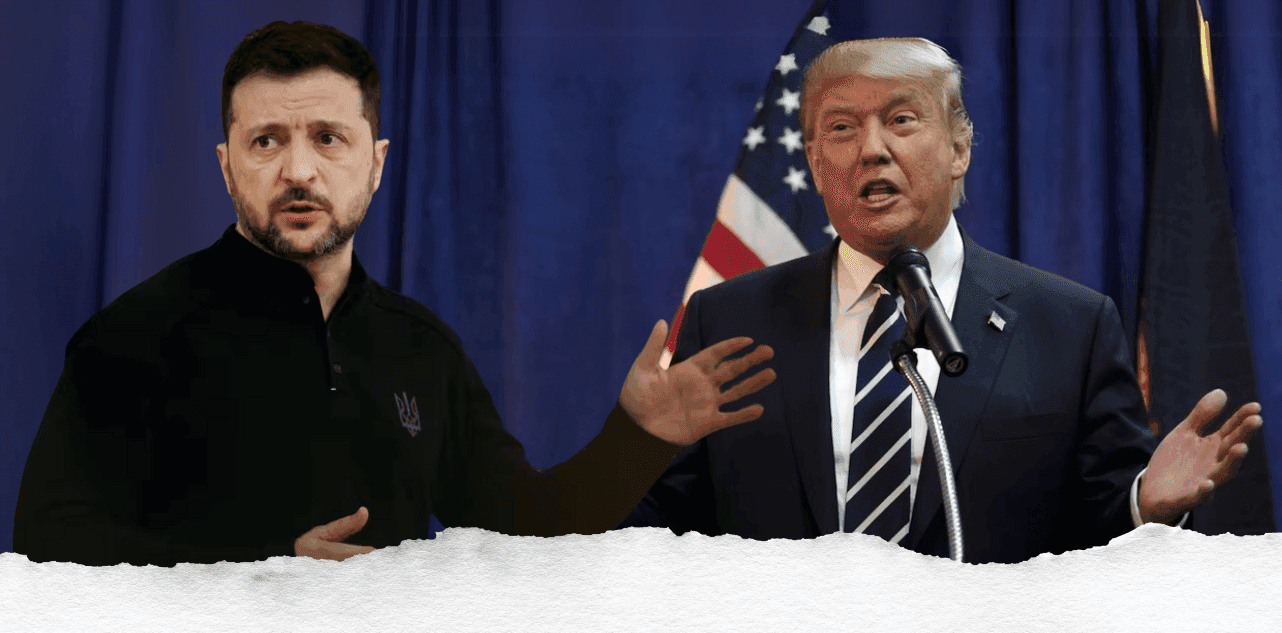Monday 16 February 2026
Trump And Zelensky Clash Again As US Says Crimea Now Russian Territory
Share

U.S. President Donald Trump and Ukrainian President Volodymyr Zelensky were once again locked in a heated exchange on Wednesday, as peace negotiations continued amid the prolonged war in Ukraine. The focal point of their disagreement this time centered on Crimea. Trump insisted that the peninsula should be considered Russian territory, a stance starkly opposed by Zelensky, who reiterated Ukraine's firm position on national sovereignty and territorial integrity.
The latest round of diplomatic talks took place in London, with negotiators reportedly considering a controversial U.S. proposal that aligned closely with Moscow's long-held demands. The plan suggested two main points: official recognition of Crimea as part of Russia and a permanent block on Ukraine’s aspirations to join NATO. Ukraine firmly rejected both provisions, which visibly frustrated Trump and threatened to derail the talks.
Trump reacted strongly to Ukraine’s stance, scolding Zelensky for what he described as a refusal to cooperate in the pursuit of peace. “Crimea was lost years ago and is not even a point of discussion,” Trump declared, expressing disbelief over Kyiv’s unwillingness to let go of the region. His comments reflected a growing impatience, with the former U.S. leader threatening to pull the United States out of the peace process altogether due to what he called Kyiv’s “obstinacy.”
Zelensky, however, stood his ground, making it clear that Ukraine will not abandon its legal claim over Crimea. “Ukraine will not recognize Russia's annexation of Crimea. There's nothing to talk about here. This is against our constitution,” the Ukrainian president said.
Trump then took to the social media platform Truth Social to publicly criticize Zelensky, accusing him of endangering the peace process. He referenced a quote from Zelensky featured in The Wall Street Journal, expressing frustration over what he perceived as Ukraine's inflexibility.
Echoing Trump’s frustration, U.S. Vice President JD Vance issued an ultimatum to both Ukraine and Russia. He warned that the U.S. would consider withdrawing from the negotiations entirely unless the parties accepted the American peace proposal. Vance described the proposal as a realistic attempt to freeze territorial lines close to their current positions and establish a diplomatic pathway toward long-term peace.
“The only way to stop the killing is for the armies to both put down their weapons and freeze this thing,” Vance stated. However, his remarks sparked further backlash from Kyiv.
Ukraine’s response was swift. Zelensky’s chief of staff, Andriy Yermak, reiterated Ukraine's unwavering commitment to its principles, stressing in a post on X that any peace deal must uphold Ukraine's sovereignty and territorial boundaries.
Since returning to the office in January, Donald Trump has dramatically shifted the U.S. approach to the Ukraine war. Unlike former President Joe Biden’s aggressive support for Kyiv and firm stance against Moscow, Trump’s administration is now seen pushing for a quick resolution, even if the terms are heavily skewed in favor of Russia.
Observers note that Trump’s urgency stems from a desire to be seen as a global peace negotiator, living up to his pledge to “end the Russia-Ukraine war in days.” His recent phone conversation with Russian President Vladimir Putin, followed by a noticeable policy tilt toward Moscow, has unsettled many of America’s European allies.
As U.S. policy shifts, European nations are stepping up their support for Ukraine, fearing that Washington's new stance may leave Kyiv isolated. For Ukraine, the path ahead remains uncertain. With the U.S. appearing increasingly determined to push through a ceasefire agreement that could compromise Ukrainian interests, Kyiv finds itself balancing diplomacy with its core principles of national integrity and independence.
Newsletter
Stay up to date with all the latest News that affects you in politics, finance and more.